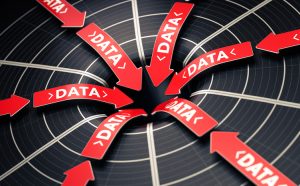Why Businesses Need A Data Hub For Analysis & Reporting
It’s true that a business’s success depends on accurate, fact-based decisions. Business intelligence solutions can facilitate the decision-making process by helping companies leverage the goldmine of information that they capture on a regular basis. But what many companies still lack today when using BI is a data hub. Such a repository can serve as the main source of business information that integrates and processes data from multiple sources into easy-to-understand formats that can be used by decision makers to fuel their insights.
How Data Hubs Work …
Manufacturers, distributors and other types of companies with slews of products and customers generate large amounts of data on a regular basis from both their internal systems and from external sources, too, like suppliers, distributors, retailers and others. Unless the data captured is stored and processed, it isn’t always useful.
The concept is quite simple: Data is extracted on a periodic basis from source systems like ERP, CRM, point-of-sale files, spreadsheets and other applications. The data is moved into a repository where it is cleaned, formatted, validated, reorganized and summarized – becoming the main source of information for generating ad-hoc queries, performance alerts, dashboards and standard reports.
While the concept of a data hub is a straightforward process, businesses have been slow to adopt it. This is changing, however, as business intelligence solution providers like Silvon Software began to package their analytical applications together with a data management platform. As a result, businesses can easily extract information from multiple sources into a single repository and then organize and optimize the information for analysis and reporting based on a common data model – giving users with the data they need in business terms they totally understand.
Why Use A Data Hub …
While the data needed to provide reports, dashboards, analytic applications and ad-hoc queries typically exists within ERP systems, why not use ad-hoc reporting and data visualization tools against this data all the time?
There are many reasons why you would want to use a data hub instead of the “direct access” approach on a regular basis:
- You need to organize and contextually analyze data coming from many different sources.
- You need to house and assess several years of historical data in order to pinpoint trends.
- You need the ability to restructure data and rename tables and fields so they make more sense to your business users.
- When users run reports directly against your operational systems, there is a higher probability that the performance of those systems will be impacted. You would prefer to avoid that!
- The information stored in a data hub is generally more usable because it is cleaned and optimized for business users before they access the data.
- Analytical tools that access information directly from transactional systems often require users to know a lot of technical detail about the data – often limiting usage to a select few. Broader user adoption, on the other hand, is important to you.
- Most importantly, data hubs ensure that everyone across the enterprise is working with the exact same data (or single version of the truth) vs. disjointed silos of information that can easily yield questionable business insights.
While ad-hoc reporting and data visualization tools certainly have their place in the world of BI, we’ve found that leveraging them together with an integrated data management and analysis solution to be the most accurate and effective way to drive business insights from information attained from multiple sources.
